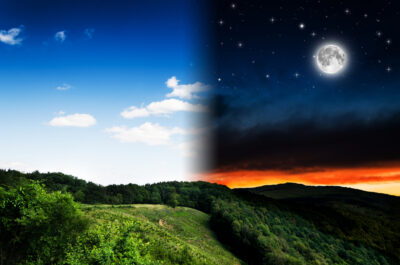 I generally do not write to specific forms, and always have to look up the “rules” for villanelles, Shakespearean Sonnets, sestinas, and the like. What I truly love is free verse. However, there are many times that working within a form is liberating in that you’ve already got a set of parameters you don’t have to worry about. And, sometimes, when you’re forced to conform to a certain structure the little creative geniuses in your brain run off into territory never explored before. That’s wonderful, and helpful!
I generally do not write to specific forms, and always have to look up the “rules” for villanelles, Shakespearean Sonnets, sestinas, and the like. What I truly love is free verse. However, there are many times that working within a form is liberating in that you’ve already got a set of parameters you don’t have to worry about. And, sometimes, when you’re forced to conform to a certain structure the little creative geniuses in your brain run off into territory never explored before. That’s wonderful, and helpful!
That is especially true with forms that have set patterns of rhyme, rhythm, or refrain. But there are other forms that are not quite so restrictive yet have their own constraints that will still give the writer a starting point. Two of those are the nocturne and the aubade (pronounced: /ōˈbäd/). They are solely defined by their subject matter and tone.
A nocturne is a piece that has been inspired by (or conjures up images/feelings of) the night. It’s often dreamy. John Donne, in about 1627, was the first English poet to use the term. When you think of nocturnes, think of Chopin’s Nocturne in E-flat major, Op. 9, No. 2. The music is dreamy, romantic. Other than that there are no constraints upon using refrains, certain meters or rhyme schemes. Free verse works well in this form.
An aubade is a dawn serenade. It’s a medieval French form that either welcomes the morning or greets it with regret since one must leave a lover’s arms to go out into the world. In its traditional form, that’s all there is to it. Again, free verse can reign.
Here’s a few lines from “Nocturne” by Irish poet Eavan Boland. A pleasant mood of tiredness permeates the poem as someone gets ready for bed.
After a friend has gone I like the feel of it:
The house at night. Everyone asleep.
The way it draws in like atmosphere or evening.
One-o-clock. A floral tea pot and a raisin scone.
A tray waits…
And below are a few lines from “Aubade” by Irene Latham. Here she laments leaving a lover—a classic subject for an aubade.
That last morning
our skin glowed
the pink glow
of the newly-hatched
and we cried
the raw cry lovers
make when love is easy . . .
Now that you know the minimal restraints, try one of each! Write several while you’re at it.
But wait … (There’s always a “but” isn’t there?) One of the things I love about these forms is breaking through the subject constraints. It’s invigorating to knock a few nocturnes on their heads and to abuse a few aubades.
Now that you’ve got a nocturne and an aubade, or two, of your own to work with, try reversing the mood in each. Here’s a few lines from a vivid poem “Nocturne” by Li-Young Lee:
Tonight, something bows
that should not bend. Something stiffens that should
slide. Something, loose and not right,
rakes or forges itself all night.
And here’s a bit of from “Aubade with Cutlery and Crickets” by Aimee Nezhukumatathil. Wow!
…Or maybe what
I smelled that morning still full of starlight
and crickets when we said goodbye—
was the clean coolness of a knife’s ricasso,
the flat rest for a thumb…
Whether you stick with the traditional subject matter of a nocturne or aubade, or flip them on their heads, it’s a fun form to work with. Try a few, see what happens.
NOTE: Shutta will be leading a free Zoom writing workshop on nocturnes and aubades for the Jax Poetry Fest, sponsored by Hope at Hand on April 11, 2023 at noon (ET). Go to Eventbrite to register and get the link for the workshop.
Below are links to the full poems cited in this post as well as a few others you might like.

Niki Kantzios
Super tip! My writers’ group, mostly poets, often leads us to experiment with new forms and it really juices up the imagination!
Shutta Crum
Great! Feel free to use this as a prompt.